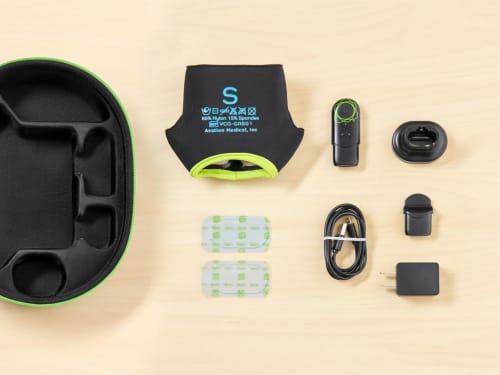2024
Medical
Tailored medical treatments represent the advent of individually-tested therapeutic interventions, providing optimal efficiency with minimal side effects. A new technique combines CRISPR gene-editing technology and artificial intelligence-guided drug design to create drugs specifically designed for the genetic makeups of individuals.
To improve quality of life for people with limited head or neck control, this innovation comfortably provides head support from the forehead instead of the chin, to allow eating, talking, side-to-side and up-down motion, while eliminating jaw discomfort from traditional neck braces.
Overactive bladder (OAB) and urinary incontinence are chronic conditions that impact more than 500 million people globally, significantly reducing their quality of life and, in many cases, substantially reducing their work productivity. Traditional treatments for these conditions range from medications to neurotoxin injections to surgical implantation of stimulators to provide neuromodulation therapy.
Trauma-induced hydrocephalus is a major health concern for military personnel, especially those who have suffered traumatic brain injuries (TBIs) during combat or training. It is estimated that around two-thirds of service members with moderate to severe TBI are at risk of developing hydrocephalus. CSF pressure measurement is crucial for early detection of hydrocephalus,
A medicine reminder robot is designed to assist patients in managing their medication schedules efficiently. This sophisticated robot can accommodate entries for a maximum of two patients, ensuring that each individual's medication needs are met accurately. It is designed to hold and dispense medicine doses for an entire week,
Digital health monitoring has reached millions of individuals, but the vital human-dog couple is missed.
Consider a dog attached to a retractable leash pulls the cord, which rotates the leash's spool. The leash functions as an embedded electrical generator, resulting in the dog's kinetic energy powering multiple embedded into the leash sensors that collect, analyze,
The project has launched a personalized doctor recommendation that aims to transform patient care by using artificial intelligence (AI) to provide advice to doctors. Applications often rely on simple criteria such as proximity or accessibility, which may fail to meet the patient's physical health, preferences, and specific needs, leading to competition for the best and reducing patient satisfaction.
The Intelligent Symptom Tracker is a novel telehealth monitoring application that addresses the challenge of comprehensive symptom tracking and analysis. By integrating user-reported data with real-time biometrics from wearable devices, the system employs advanced algorithms to identify symptom patterns and correlations. The app's core features include daily symptom logging, automated data collection, pattern recognition,
Page 2 of 8










